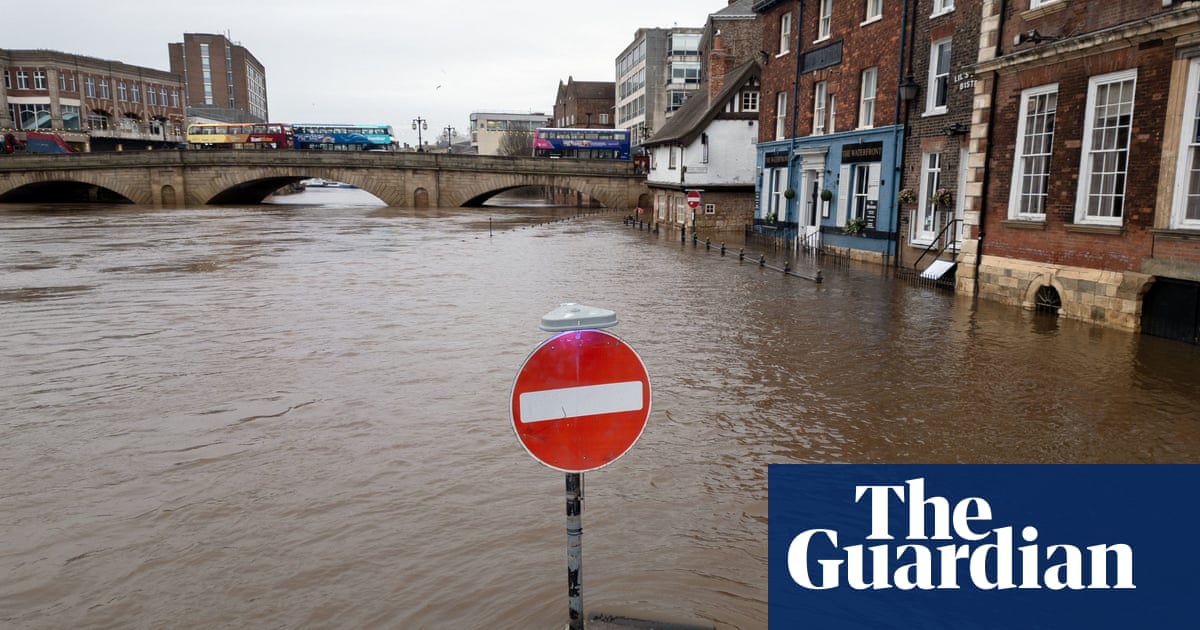
Patrick Vallance has warned MPs that the world is about to be plunged into even deeper turmoil than it was during the Covid pandemic because of the impact of climate change.
The government’s chief scientific adviser gave an emergency briefing to 70 parliamentarians this week, warning of the dangers of the climate crisis and urging them to act.
He was joined by Prof Stephen Belcher from the Met Office, Prof Emily Shuckburgh, from Cambridge Zero and Prof Gideon Henderson, the chief scientific adviser at the Department for Environment, Food and Rural Affairs. All of them showed MPs slides – like the ones they perhaps became used to during the Covid lockdowns – which can be seen in full on this link.
Vallance warned MPs: “We’ve had two and a half years of a global crisis in the form of a pandemic. We face 50 years of really big problems relating to climate, and the nature of that threat to countries around the world means that this has to be one of the things that has to be on every government’s agenda. There is no way we can pretend it isn’t happening.”
While the scientists made no political recommendations, as they were there simply to present the science, they told MPs that action is needed now to stop the worst effects of the climate emergency.
“To give three observational facts … the world is warmer than it was, the CO2 levels in the atmosphere are higher than they have ever been, and extreme weather events are more common than before all this happened. That’s what we face, and the aim of this briefing is to speak about the science,” Vallance said.
The slides are similar to those shown to Boris Johnson before Cop26 by Vallance, which the prime minister said was his “road to Damascus” moment on climate change.
Belcher’s data from the Met Office makes for uncomfortable reading, showing that widespread changes in the ocean, cryosphere and biosphere have occurred since the emergence of homo sapiens. The charts in his slides dramatically make that point. He also showed that Arctic sea ice cover has reduced by 12 every decade, and in 40 years we could have lost enough to cover an area greater than India, Bhutan and Bangladesh combined.
He also drew attention to recent extreme weather events in the US, Europe and Bangladesh, to show that the effects of climate change are already being felt, with worse predicted to come.
Shuckburgh’s message was slightly more upbeat, showing how emissions can be reduced while increasing GDP. However, she also showed that while we have made some progress, emissions need to be reduced more quickly and in a wider variety of sectors to reach net zero. This includes surface transport and buildings as a priority.
Henderson gave his presentation even more relevance by drawing attention to the predicted heatwave, where temperatures could hit record highs in coming days. He focused on the threats from extreme weather, and how it could hit food production by increasing issues including potato blight and livestock thermal heat stress.
The briefing also showed parliamentarians that the way we currently lead our lives is going to have to change, as new technologies to remove carbon from the atmosphere are not going to be enough to offset emissions in time.
Vallance warned: “Technology is going to be an important part of dealing with this, but it is not a magic solution and isn’t going to deal with it on its own. If you take 2050, any technology that you can’t see already working is not going to save our bacon because of the scale of which these things need to be introduced.”
The briefing was arranged after the activist Angus Rose staged a 37-day hunger strike outside parliament, calling for the information to be given to all MPs. He was backed by 79 of the UK’s leading climate scientists in an open letter, who said a briefing similar to those given during the Covid pandemic would be useful to MPs.












